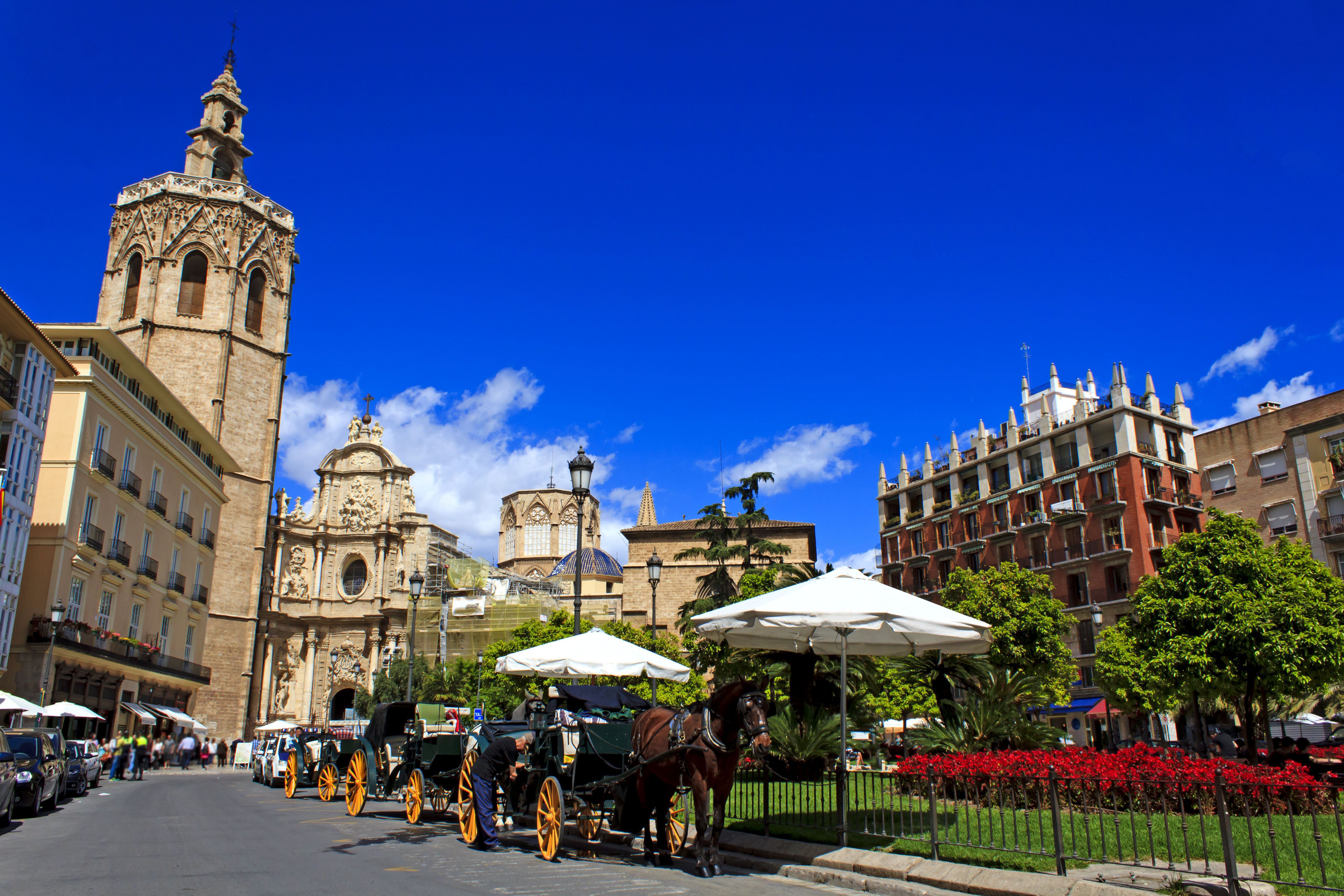Destination: New York, USA
The reason why New York is a super popular touristic destination is because it’s such a diverse city and it has something for everyone. More than one person told me before I went “Oh, you’ll love it! It’s my favourite city!”
So what makes it so loved? New York is definitely impressive. All the famous places you’ve seen in movies, the skyscrapers, rushed people, Central Park, they all make you feel the strong impact of this powerful city.
If you really want to “feel” the city and get that really local feeling, I’d suggest saving up and finding a place to stay on the Manhattan island, either a hotel or an airbnb – it’s close to everything and you’ll earn more time to look around than spend on transportation.
I’m not usually the type of tourist to go on the beaten path but some of the popular places have really fascinated me, like Top of The Rock, which is a three level observation deck at the 67th, 69th, and 70th floors of 30 Rockefeller Plaza. The Empire State Building is another place you can get 360° views of the city, however if you have to choose between the two, I’d go with Top of The Rock; it has windows instead of a fence and the highest level doesn’t have any restrictions. It’s totally safe though, I promise. Timing of the people going up is more organised and you actually have enough space to take photos and enjoy the view.
Take a day for Central Park, it’s a fantastic place. If you’re working your way up North, on the West side of the Park you’ll find the Guggenheim Museum, which is a real masterpiece of architecture and a great art museum.
West Village and Greenwich Village are definitely the cutest districts. If you’re a fan of Friends, that’s where their famous building is! Sadly, it’s just a normal residential building, as the show was all filmed in studios in California.
Another interesting place that I loved was The High Line. It’s an old elevated section of a railway in Chelsea district transformed into a 1.45-mile-long (2.33 km) linear park. While you’re there make sure to see Chelsea Market – an old factory now transformed into an indoor food hall. They have amazing food from all over the world. It’s very hard to resist eating everything in sight, don’t say I didn’t warn you.
There are many great places in New York that are waiting to be discovered. Just get lost on the streets of different districts and wander around, they all have their own unique character.
Travelling to New York? Be prepared with uTalk – you can use it from over 100 languages!
Ioana
Destination: Valencia, Spain
Next up on our list of top holiday destinations is Valencia – here’s Ioana to explain how the Spanish city captured her heart…
The fact that it’s not one of the top touristic destinations in Spain, had me not really knowing what to expect of Valencia. Of course, I was looking forward to amazing paella, sunny skies and tapas, but Valencia has its own special charm that makes it feel like everything that you’d expect of Spain but better. Valencia has surprised me in a delightful way and I want to share my excitement and love for this place.
Not too big and with very good public transport options, it’s a very “manageable” city, as a former local told me. They love bikes over there so if that’s your thing, research on how you can rent a Valenbisi. Walking is a pleasure – beautiful old buildings and orange trees that decorate many of the pavements.
What used to be the bed of the the river Turia was transformed into a huge park with plenty of vegetation, sports courts, fountains and the futuristic looking Calatrava buildings and bridge, collectively called the City of Arts and Sciences, including a planetarium, an oceanarium and an interactive museum. Feeling like you’re about to embark on a spaceship, the beautiful buildings make it hard to take your eyes off them. All white and with bold curves and angles, decorated with light blue water fountains all around, it’s very easy to be impressed by the architect’s talent and vision.
South of the park is the old city centre, which is best explored by foot. All the little streets are beautiful and each neighbourhood has many cafes and bistros where you can take a break and indulge in the delicious Spanish cuisine. One of my favourite places is Plaza de la Reina. The fact that we had some amazing chocolate con churros at one café of the many around the plaza does not influence my decision at all 😉
Where do the cool kids hang out? I hear you ask me. The answer is Russafa. It is the hip neighbourhood with a rich cultural mix which makes it the favourite social place for both tourists and locals. The classic Spanish buildings are home to many restaurants and cafes with delicious pastries. The nightlife here is very lively and is the kind of place where on a hot summer night you might accidentally walk right into a street festival.
In only four days Valencia has managed to make me fall in love with it and quickly climbed and reserved a spot in my top 3 favourite places in the world. Characterful, filled with culture and history, great food, amazing weather and happy palm trees, Valencia surely knows how to impress.
Heading to Spain this summer? Remember to download uTalk before you go so you’re prepared with some basic Spanish conversation!
Overcoming anxiety when speaking a foreign language in public
Thanks to guest blogger Eve Pearce, who’s written today’s really helpful article about something every language learner has had to deal with at some point – overcoming the fear of actually speaking it. If you have any other top stress-busting tips, we’d love to hear about them in the comments!
Seasoned foreign language teachers will probably tell you that one mark of a successful student in terms of language learning, is ‘openness’, ‘daring’ and sometimes, even ‘cheek’. The more free of self-consciousness and shame a student is, the more likely they are to progress, since one vital part of language learning is using it – having conversation with other speakers, communicating, living the language one is learning.
It is easier said than done for some learners, however, especially those suffering from anxiety. Far from being an exotic condition, anxiety is actually the most common mental condition in the US, the UK and many other countries. The daily stresses and demands of life can invoke our ‘fight or flight’ response, raising our heart and breathing rates and sometimes, even causing debilitating panic attacks.
As a language learner, anxiety may have stopped you in your tracks. It may have made you fear situations and people you do not know well. It can stop you from making many important changes in your life, or from learning a new language and interacting with other students and foreign language speakers. Anxiety can play big tricks on body and mind; excess oxygen levels (produced by breathing too rapidly) can cause muscles to cramp and can cause hyperventilation. Sometimes, the problem is mild but still uncomfortable – for instance, a person may fear having to get up in front of a class and make a speech in another language.
If you are suffering from anxiety, and you feel like it is interfering with your ability to progress as a foreign language learner, try some of the most effective relaxation techniques known to those who have recovered from this condition. Foremost among these techniques is abdominal breathing. It is quite simple – just breathe in a large amount of air through your nose, allowing your abdomen to expand. Keep the breath in for a few seconds then exhale, slowly, through your mouth. Do this various times and you will note that your heart rate drops, even when you are very stressed.
Yoga is another highly successful technique at quelling anxiety and stress, so much so that it is offered at practically every top rehabilitation centre for addiction and for eating disorders. Yoga is such an excellent way to battle anxiety because it can be practised by people of all fitness levels and ages, it is cheap, and also a proven method of lowering stress hormone (cortisol) levels. It involves a connection between body, mind and spirit. Controlled breathing is also used, and various poses (asanas) are performed.
Sometimes, mindful meditation can be practised during a yoga session, yet meditation is also useful on its own to calm stress. If you have anxiety, you should definitely set aside a few moments during the day to meditate. There are numerous free online meditation sessions lasting minutes, as well as meditation and breathing apps for your phone, which you can follow while you are in the car or on the bus to work or school.
If you try these methods out and you do not improve, or your anxiety is very severe, then expert help may be required. A good therapist will be able to help you in a handful of session, by utilizing techniques such as CBT (Cognitive Behavioral Therapy), which aims to help patients identify stress triggers and find positive ways to channel tension.
If you have an upcoming talk in a foreign language and you are worried about what others will think if your delivery isn’t perfect, remember that most speakers make mistakes and even suffer from nerves before they begin. Language isn’t a competition; it is a progression and it pays to keep in mind that even if the worst possible outcome occurs (e.g. you forget your speech or you feel too nervous to speak), the event is not the be-all, end-all of your language learning experience. There will always be another chance, further down the line, to do that exam or speak before an audience.
Through relaxation techniques, breathing and therapy, you soon discover that anxiety is little more than a trick – it is your body’s way of choosing ‘flight’ (escape) when the ‘fight or flight’ response kicks in. By simply breathing for a few minutes until your heart rate settles, you can stop anxiety in its tracks – and begin to view language learning as the enjoyable pursuit it really is.
Eve Pearce
‘Zewg birer, jekk joghgbok’ (or How to say ‘2 beers please’ in Maltese)
Katherine is one of our uTalk Challenge participants; she chose to learn Maltese in preparation for her holiday in the sunshine! Here she shares a few of her language adventures, and explains why she found knowing a little bit of the local lingo made the trip even more enjoyable.
Learning Maltese probably counts as one of the more pointless things you could do in life, as it is only spoken in two small islands, where everybody speaks very good English. But being in the position of having a week’s holiday booked in Malta for the last week of January, it seemed like the perfect thing to do for January’s uTalk challenge; after all, it is a language, and a very interesting-sounding one at that – it appears to be a mixture of Italian, English and Arabic. And what a great place to visit in January too, with the sun shining and temperatures in the high teens.
So here I am with my “gelat” (ice cream) in front of Mgarr in Gozo (the harbour where the little ferry arrives from Malta, just a couple of miles away), with some people talking on a “dghajsa” (boat) behind me, and the “xemx” (sun) shining brightly. And then with my husband at the “Tieqa Zerqa” (the Azure Window), which is one of the features shown in the final uTalk topic about the country. That section is great when you actually get to the country, as you can recognise places and know how they should be pronounced. In fact, having got the gist of how the combinations of letters are pronounced, it was great fun to be able to say the place names and street names and even read some notices, picking out the odd word or two.
It was on our outing to Gozo that I had my highlight of the week, language-wise. I was able to order some coffees, one black and one with milk and some local snacks (also featured in the Malta topic, so I knew they were the local delicacy)! I also asked for the bill and said goodbye etc; this all delighted the elderly lady serving us, in fact maybe we made her day! Not quite such success later that same day, when I came to use the phrase top of any uTalker’s list – “Zewg birer, jekk joghgbok” (2 beers please). I thought I had said it wrong, but it turned out the waiter was from Serbia!
So, even though it was not at all necessary to learn Maltese to visit Malta, it definitely enhanced my holiday to be able to do so a little bit. And what’s more, even though I suspected I had been learning the words and phrases just to amass the points and they wouldn’t stick, I found that they kept popping into my mind, so in fact they had stuck!
A great challenge, and I’m looking forward to next month’s new language!
How to keep New Year’s resolutions
We’re well settled into the new year and we’re all full of hopes and dreams for the next 12 months – learning a new language, getting fit, changing our job, travelling more. Most likely in the first week of the year you were super pumped, ready to drop anything to stick to your main goal(s).
By the time the second week came however, you kind of settled in, relaxed the rules a bit and got back to some of your old habits. When January’s over, your goal will be completely forgotten like it was never there and you’re going to be thinking ‘how silly of me to think that I could learn Spanish’.
That can be one of the ways the future looks. Let’s take a different turn. Lets push through the phase when we want to give up and see what happens. The other road is familiar but wouldn’t it be nice to see what else can happen? What if you did learn Spanish this year? You could read books in Spanish, and you could talk to other Spanish speakers, and on your next holiday in Spain you could strike up a conversation with a stranger and end up making new friends.
Studies have shown that the human brain tends to value immediate rewards more than future rewards. When you set a goal or a resolution you are in fact making plans for your future self and it ‘s easy to imagine how your life can look. But, when the time comes that you actively pursue that goal most people choose immediate gratification and opt to do what they feel like in the moment.
Now that we understand how our mind works, it’s time to find ways to stop this from happening.
- Start slowly and build a ritual. Set yourself to practice for half an hour a day – that’s not too much to ask right? Offer yourself a reward after – if you’re learning a language with uTalk, the reward comes in the form of earning points and we all like to build up to a nice score, right?
- Put aside some of your other tasks. Obviously not work or eating but if you usually browse the Internet while commuting why not replace that with your main goal?
- Keep your eyes on the prize – never lose sight of your motivation. Look at pictures of beautiful Spanish landscapes and imagine yourself having a chat with the locals, or listen to Spanish songs and try to understand the lyrics.
I hope this helps you push through the temptation of giving up and will ultimately get you to your goal. And don’t worry about making mistakes; the only person who loses is the one that gives up, so no matter how slow you are going, it’s still better than if you weren’t doing anything.
And if your goal is to learn a language (or twelve…), there’s still time to join the uTalk Challenge!
Ioana









